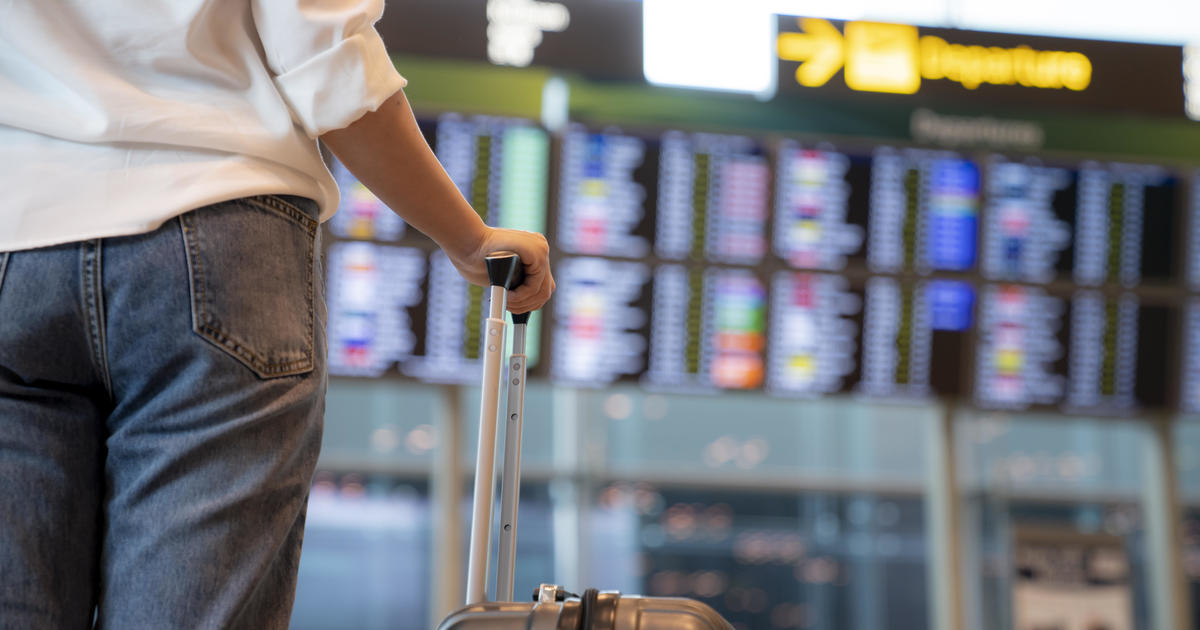Dallas County Judge Clay Jenkins Says Coronavirus-Related Restrictions Likely To Last Months
More North Texas Counties Poised To Issue 'Stay At Home' Orders To Fight Spread Of Coronavirus
DALLAS (CBSDFW.COM) - Dallas County Judge Clay Jenkins along with Dr. Philip Huang, Director of Dallas County Health and Human Services and Dr. Mark Casanova, President, Dallas County Medical Society discussed the "Stay Home Stay Safe" order as the number of coronavirus cases in the region grow on Monday evening.
Dr. Casanova said at this point, everyone in the community falls into one of three categories: Life savers, life supporters or life protectors.
The mandatory Shelter In Place order Judge Jenkins announced on Sunday goes into effect at 11:59 p.m. Monday.
Judge Jenkins said Monday evening he is unsure how long the shelter in place order will last in Dallas County: "The estimate from the medical community is not two weeks, it's months unfortunately," he said,
To lift the order he said he would heed a recommendation from the medical community.
"This is not a time for politicians," Judge Jenkins said. It's a time to listen to scientists."
WATCH FULL NEWS CONFERENCE HERE
For purposes of this order, the following are deemed essential activities:
- To engage in activities or perform tasks essential to their health and safety,
or to the health and safety of their family or household members (for example, obtaining medical supplies or medication, visiting a health care professional, or obtaining supplies need to work from home). - To obtain necessary services or supplies for themselves and their family or household members, or to deliver those services or supplies to others (for example, food, pet supply, and any other household consumer products, and products necessary to maintain the safety, sanitation, and essential operation of residences.
- To engage in outdoor activity, provided the individuals comply with social distancing requirements of six feet (for example, walking, biking, hiking, or running).
- To perform work providing essential products and services at an Essential Business or to otherwise carry out activities specifically permitted in this order.
- To care for a family member or pet in another household.
For purposes of this order, "essential businesses" mean:
- Essential Healthcare Operations
-
- Healthcare operations, including hospitals, clinics, dentists, pharmacies, pharmaceutical and biotechnology companies, other healthcare facilities, healthcare suppliers, mental health providers, substance abuse service providers, blood banks, medical research, laboratory services, or any related and/or ancillary healthcare services. Home-based and residential-based care for seniors, adults, or children are also considered healthcare operations. Healthcare operations also includes veterinary care and all health and welfare services provided to animals. This exemption shall be viewed broadly to avoid any impacts to the delivery of healthcare. Healthcare operations do not include fitness and exercise gyms and similar facilities. Healthcare operations do not include elective medical, surgical, and dental procedures as established in accordance with Subsection 1(g) of this order.
- Essential Government Functions
- All services provided by local governments needed to ensure the continuing operation of the government agencies to provide for the health, safety and welfare of the public. Further, nothing in this order shall prohibit any individual from performing or accessing "Essential Government Functions." All Essential Government Functions shall be performed in compliance with social distancing requirements of six feet, to the extent possible.
- Essential Critical Infrastructure
- Work necessary to the operations and maintenance of the 16 critical infrastructure sectors as identified by the National Cybersecurity and Infrastructure Agency (CISA) including public works construction, residential and commercial construction, airport operations, water, sewer, gas, electrical, oil refining, roads and highways, public transportation, solid waste collection and removal, internet, and telecommunications systems (including the provision of essential global, national, and local infrastructure for computing services, business infrastructure, communications, and web-based services), financial institutions, defense and national security-related operations, essential manufacturing operations provided that they carry out those services or that work in compliance with social distancing requirements of six feet, to the extent possible. Essential Businesses providing essential infrastructure should implement screening precautions to protect employees and all activity shall be performed in compliance with social distancing guidelines attached.
- Essential Retail
- Food service providers, including grocery stores, warehouse stores, big-box stores, bodegas, liquor stores, gas stations and convenience stores, farmers' markets that sell food products and household staples. Food cultivation, including farming, fishing, and livestock. Businesses that ship or deliver groceries, food, goods or services directly to residences. Restaurants and other facilities that prepare and serve food, but only for delivery or carry out. Schools and other entities that typically provide free services to students or members of the public on a pick-up and take-away basis only. The restriction of delivery or carry out does not apply to cafes and restaurants located within hospital and medical facilities. Laundromats, dry cleaners, and laundry service providers. Gas stations, auto-supply, auto and bicycle repair, hardware stores, and related facilities. Businesses that supply products needed for people to work from home.
- Providers of Basic Necessities to Economically Disadvantaged Populations
- Businesses that provide food, shelter, and social services, and other necessities of life for economically disadvantaged or otherwise needy individuals.
- Essential Services Necessary to Maintain Essential Operations of Residences or Other Essential Businesses
- Trash and recycling collection, processing and disposal, mail and shipping services, building cleaning and maintenance, warehouse/distribution and fulfillment, storage for essential businesses, funeral homes, crematoriums and cemeteries. Plumbers, electricians, exterminators, and other service providers who provide services that are necessary to maintaining the safety, sanitation, and essential operations of residences and Essential Businesses. Professional services, such as legal or accounting services, when necessary to assist in compliance with legally mandated activities. Businesses that supply other essential businesses with the support of supplies needed to operate.
-
- News Media
- Newspapers, television, radio and other media services.
- Childcare Services
- Childcare facilities providing services that enable employees exempted in this order to work as permitted.



